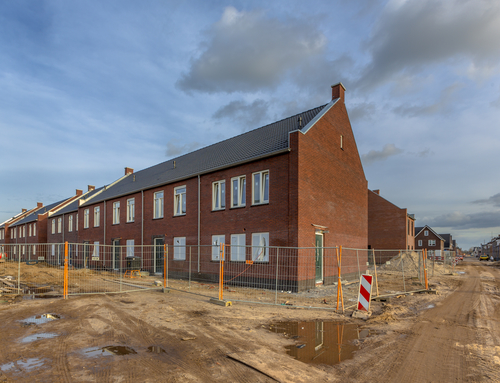Quotas for seasonal worker housing may conflict with EU law: FD


Restrictions imposed by many local authorities in the Netherlands about how many seasonal workers can be housed in some areas may be unlawful, the Financieele Dagblad said on Friday.
Around 500,000 people from mainly Poland, Romania and Bulgaria are thought to work in Dutch greenhouses, the meat processing industry and in distribution centres, but they often live in cramped conditions and locals complain about noise and parking problems, the FD said.
This has led to a variety of attempts to restrict the number of seasonal workers who can live in one place, and as many as 77% of the local authorities in Brabant have imposed some form of quotas, the FD said.
In Maasdriel in Gelderland, for example, the council says seasonal workers can occupy no more than 5% of the homes while in Zaltbommel they will be banned from living in residential areas altogether within five years.
Arnhem city council too is working on plans to stop groups of seasonal workers sharing a house by revising its rules on sub-dividing homes. The council plans to introduce a licence system for flat or house-sharers, and these will not be granted if the property is to be lived in by ‘temporary workers’.
EU rules
However, given that the workers are mainly from other EU countries, quotas and other restrictions will conflict with freedom of movement rules. ‘These local rules also clash with the European right to equal treatment of all workers and self-employed throughout Europe,’ immigration law researcher Gerrie Lodder told the paper.
Many local authorities are also trying to concentrate seasonal workers in the same place, preferably in the location where they work. Others have developed accommodation known as ‘Polenhotels’, a term slammed by the Polish ambassador to the Netherlands last year.
Experts suggest there is a shortage of 120,000 places for seasonal workers. Meanwhile, efforts are also underway to try to stop staffing agencies including accommodation in their packages, which is often expensive and of poor quality.
Parliament
MPs in June voted in favour of a motion to improve the housing lived in by staffing agency workers but there was not enough support for a ChristenUnie and Socialist party plan to stop agencies making accommodation part of contracts, including automatic deductions.
The Dutch statistics agency CBS said last year that workers from Poland, Romania and other eastern and central European countries earn the lowest wages of all immigrant groups.
Some 80% of the 180,000 Polish nationals working in the Netherlands earn less than €15 per hour and 18% of them earn less than €10, the CBS said.
Thank you for donating to DutchNews.nl.
We could not provide the Dutch News service, and keep it free of charge, without the generous support of our readers. Your donations allow us to report on issues you tell us matter, and provide you with a summary of the most important Dutch news each day.
Make a donation